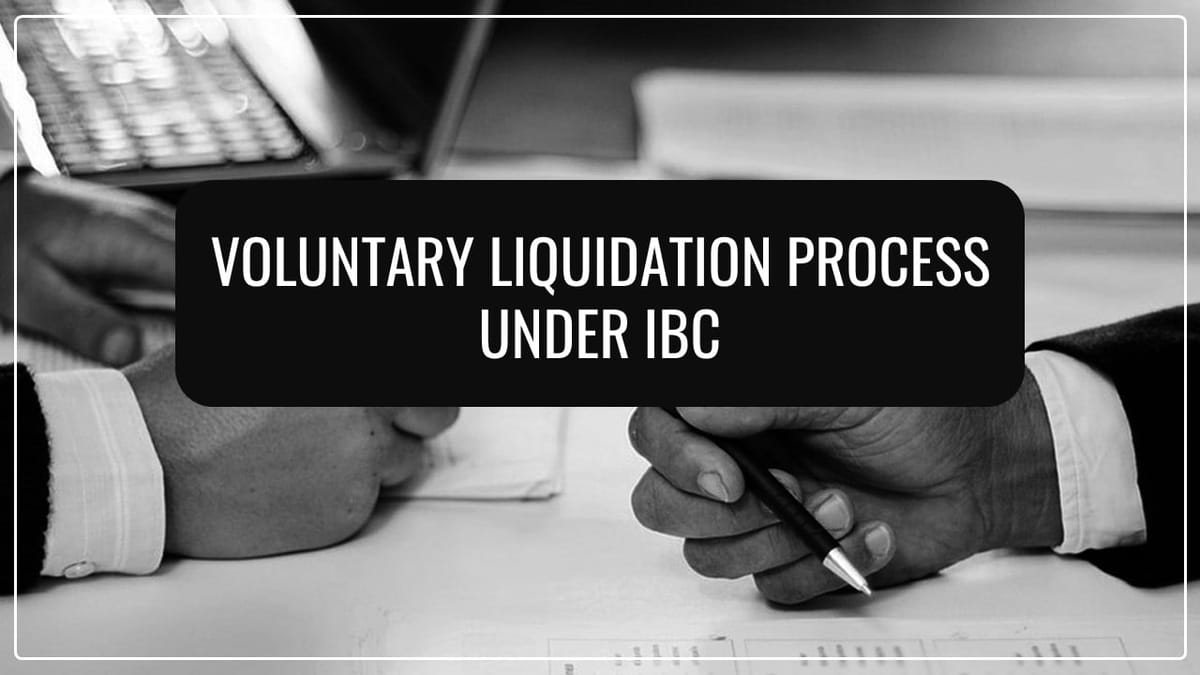The Institute of Chartered Accountants of India (ICAI) has released the Handbook for Guidance of Insolvency Professionals on Voluntary Liquidation Process.
Reetu | Mar 4, 2024 |

ICAI released Handbook for Guidance of Insolvency Professionals on Voluntary Liquidation Process
The Institute of Chartered Accountants of India (ICAI) has released the Handbook for Guidance of Insolvency Professionals on Voluntary Liquidation Process.
The Insolvency and Bankruptcy Code, 2016 (IBC or the Code) is one of the most significant economic reforms brought out in the country. Since the introduction over the past seven years, the Code has proven to be a vital legislation in the debt resolution sphere. For effective and efficient functioning, the IBC has been amended six times by the Parliament. Also, the Regulations made under the Code are being amended regularly to overcome impediments in the implementation of the processes and to be in sync with emerging requirements.
The Code outlines a voluntary liquidation process for corporate entities that have not made any defaults and wish to liquidate themselves. This process can be initiated under the IBC. The process follows the Code and involves the appointment of an Insolvency Professional as the Liquidator.
The overall goal of The Insolvency and Bankruptcy Code, 2016 (IBC or the Code) is to provide a time-bound and market-determined framework for the orderly resolution of stressed assets wherever possible, as well as an orderly and easy departure where necessary. With six changes to date, the Code has achieved several institutional milestones, instilling optimism and confidence in stakeholders. The country is currently witnessing the effects of the successful implementation of the IBC, which was made possible by the construction of an effective institutional framework.
Aside from providing a framework for insolvency resolution, the Code also includes a Voluntary Liquidation Process, which allows a corporate person to initiate a voluntary liquidation process if the majority of the corporate person’s directors or designated partners make a declaration stating that the corporate person has no debt or will be able to pay its debts in full from the proceeds of the assets to be sold under the proposed liquidation.
The Committee on Insolvency and Bankruptcy Code of ICAI as part of its various initiatives towards knowledge dissemination is bringing out this publication – Voluntary Liquidation Process – A Handbook for the Guidance of Insolvency Professionals to facilitate professionals in understanding the provisions and specific processes in conducting Voluntary Liquidation Process under IBC.
IBC also provides a detailed framework for the Voluntary Liquidation Process, which is significant for a corporate person who intends to liquidate itself voluntarily.
As provided in Section 59 of IBC, a corporate person who intends to liquidate itself voluntarily and has not committed any default may initiate voluntary liquidation proceedings and the following conditions have to be met:
According to the IBBI Newsletter- July-September 2023, the reasons for voluntary liquidations (excluding withdrawals) undertaken by 1649 Corporate Persons till September 30, 2023 are accessible for 1571 cases, as shown in the figure below. The majority of these corporations are small business firms. 1022 of them have paid-up equity capital of less than Rs. 1 crore. Only 234 of them have paid-up capital greater than Rs. 5 crores. The corporate entities for whom information is available have a total paid-up capital of Rs.12,040 crores.
A corporate person who intends to liquidate itself voluntarily and has not committed any default may initiate voluntary liquidation proceedings under Chapter V Part II of the Insolvency and Bankruptcy Code, 2016 (IBC or the Code) – section 59(1).
The voluntary liquidation of a corporate person shall be allowed on such conditions and procedural requirements as may be specified by the Board – section 59(2).
The Process for voluntary liquidation is described below:
(1) Declaration from the majority of the directors of the company verified by an affidavit: The company should first take declaration from majority of the directors of the company verified by an affidavit stating that—
(i) they have made a full inquiry into the affairs of the company and they have formed an opinion that either the company has no debt or that it will be able to pay its debts in full from the proceeds of assets to be sold in the voluntary liquidation; and
(ii) the company is not being liquidated to defraud any person – section 59(3)(a).
The declaration shall be accompanied with the following documents, namely:
(i) audited financial statements and record of business operations of the company for the previous two years or for the period since its incorporation, whichever is later;
(ii) a report of the valuation of the assets of the company, if any prepared by a registered valuer – section 59(3)(b).
To Read More Download PDF Given Below:
In case of any Doubt regarding Membership you can mail us at contact@studycafe.in
Join Studycafe's WhatsApp Group or Telegram Channel for Latest Updates on Government Job, Sarkari Naukri, Private Jobs, Income Tax, GST, Companies Act, Judgements and CA, CS, ICWA, and MUCH MORE!"